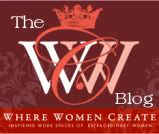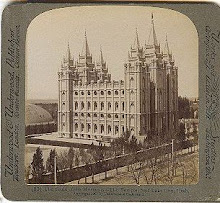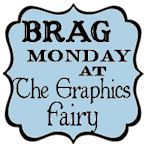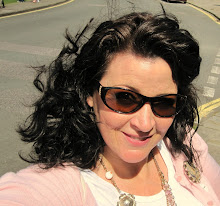I don’t know how a writer like Jane Austen creates a novel. Does she come up with an idea for the plot first? Or is there a character nagging away at her creativity until she can breath life into it?
My reading would cause me to lean toward the character side. Her nieces and nephews remember her visits as being full of stories of ‘Fairyland’ where each fairy had their own distinct p
ersonality. She would pick up the stories where she left off, to the delight of her young relatives.
The main plot of every novel is the same. It is “that most interesting time in a young woman’s life” of courtship and marriage. But each engagement has its own set of circumstances, and I see Jane manipulating the attributes and settings to create a new work the way someone would adjust the tone or treble on an equalizer. What if there is lots of beauty and charm, but no money? What if there is plenty of money, but our heroine is, for lack of a better word, clueless? What if all the wit, charm, and vivacity is in the hands of the female competition? Is a rogue always a rouge, or can a good woman ‘be the making of him?”
As an example, Fanny Price is my favorite of all Austen’s characters. I admire her virtue and self command. And yet there are many readers who feel quite strongly about her in another sense, they can’t stand her. I don’t understand this. Perhaps we should look at her character as another medium at the artist’s disposal. After all, if every Austen heroine was gorgeous, witty, smart, and lucky, then Jane’s heroines would be no different then 90% of the fictitious women ever created, and less memorable.
Just for fun, let’s compare Fanny’s personality to a similar girl, Mary Bennet. Both have a high moral standard. Both are studious and attempt to apply what they’ve read to their actions. Both are humorless and plain. While Mary doesn’t display Fanny’s poor health and delicate nerves, she is far from possessing the active energy of her sisters Lizzy or Lydia
Here are the differences as I see them. Mary is very anxious to show what she knows. She is lost in a sea of superior sisters, and vying for her parent’s attention. Fanny has no such ambition. She recognizes her place on the bottom rung, and would never attempt to put herself forward in the presence of her aunts, uncles and cousins. Yet in knowing her lowly position, she is probably the most self aware of all Austen’s characters.
Here is another argument for my “character first” theory. In Austen’s early published works a personality contrast for the main character was provided within the novel. Eleanor had Marianne to offset her prudent good sense with a little impulsive, sensibility. In Pride and Prejudice and array of young woman characteristics are fanned out before us like a hand of cards. Jane, all sweetness and goodness, sees nothing but sweetness and goodness. There is witty, clever, smart Lizzy, her fathers favorite, beautiful and energetic. Poor Mary, wanting in almost every way, smart enough to know there’s a problem, but never able to fix the problem. Kitty is probably fighting for her mother’s affections the way May is fighting for her father’s. Both loosing battles, but Kitty seems to be a bit more good natured about it, constantly condemned to being a follower to a younger sister. Even Jane, in many ways second to Elizabeth, falls in love first and gets the first proposal out of the two. Then there is Lydia- flirtatious, careless, amoral, thoughtless, selfish and vain. Have I left anything out? Interestingly enough to my characters-as -an -art -medium -theory’, she is a polar opposite to her elder sister Jane.
The earlier novels were a cavalcade of young female personalities. I would surmise that by the time these were published it elevated Jane’s confidence that she would be able to write future novels to exhibit new characters. This relieved the need to put so many in close contrast in each novel. Now we can hold Fanny Price up to an Emma Woodhouse or an Anne Elliot to compare, contrast, and understand.
And just to be provoking I’ll tell you that the other Austen character I think is most like Fanny Price is none other than Mr. Darcy. I can almost see Jane sitting near the window dreaming…..What if there was someone as fastidious as Darcy, as circumspect, as beholden to complete decorum…. Yet someone with no money, low family connections, no prospect or position, no strength of constitution, and instead of a tall imposing man, a small, frail, woman? Hmmm, how would that play out? And the quill begins to scratch away. cavalcade
농식품 바우처 신청 방법과 필수 팁
2 hours ago


















































No comments:
Post a Comment
People who must have their share in the conversation: